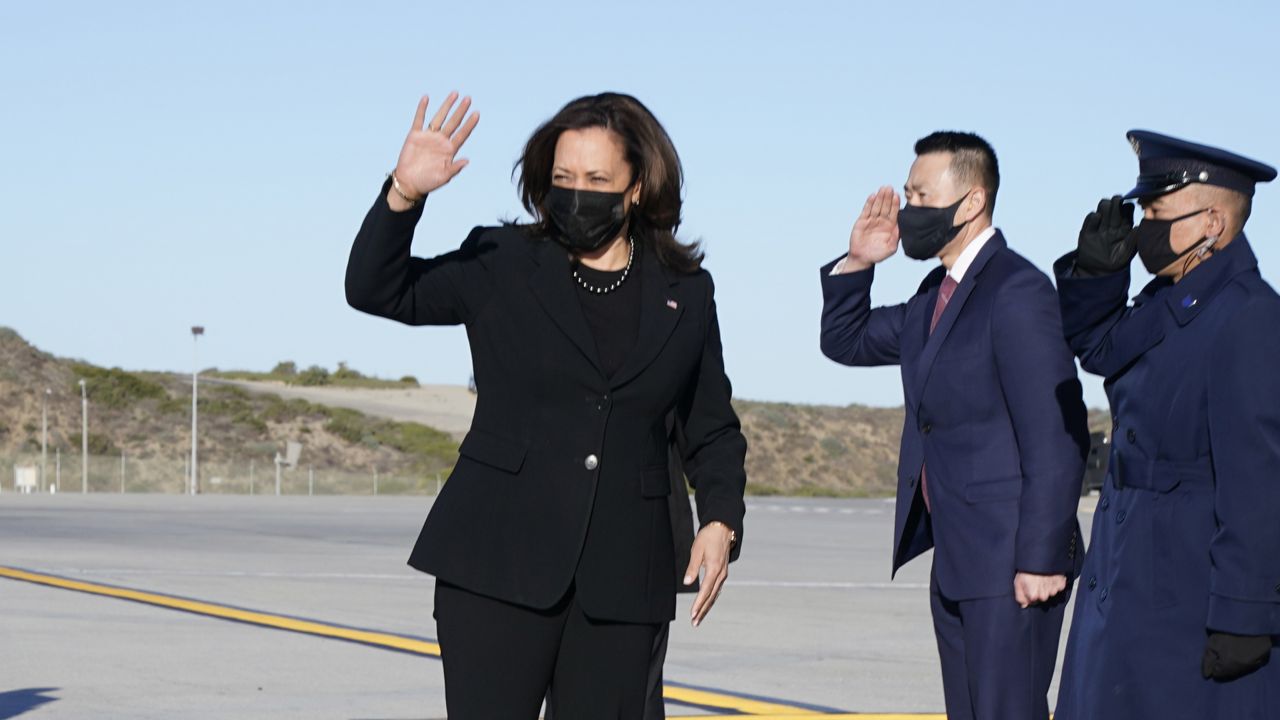Kamala Harris made a number of historic firsts on Tuesday, becoming the first female vice president to deliver an address during the United Nations’ 65th sessions of the Commission on the Status of Women (CSW).
The speech also marked the first time a Biden administration official has spoken in front of the United Nations; Harris also became the highest-ranking official in U.S. history to speak during CSW.
UN Ambassador Linda Thomas-Greenfield also delivered remarks during Tuesday's event, making it the first time the United States' delegation to the commission was co-led by two women of color.
The mission of the 2021 CSW is to push for the “full and effective participation and decision-making in public life, as well as the elimination of violence, for achieving gender equality and the empowerment of all women and girls,” per its website.
During her speech, Harris cheered the successes of women both in the United States and around the globe, saying the Biden-Harris administration is committed to helping “empower women worldwide.” Harris pointed to President Joe Biden’s recent nomination of two top female generals to helm combatant command posts as evidence of this empowerment in action.
“Just last week, the President nominated two women to take the helm of two of our 11 combatant commands,” Harris said. “Women in the United States lead our local, state, and national governments, make major decisions regarding our nation's security, and drive major growth in our economy.”
On March 8 — International Women’s Day — President Biden General nominated Jacqueline Van Ovost to be Commander of the United States Transportation Command, and Lieutenant General Laura Richardson to be Commander of the United States Southern Command. Should they be confirmed by the Senate, Van Ovost and Richardson would become the second and third women in U.S. history to lead a Combatant Command.
While saying that she is “inspired by the progress that is being made” for women’s equality around the world, Harris also stressed that leaders “cannot take this progress for granted.”
Harris touched on the increased strain the coronavirus pandemic has placed on women, saying the virus has “threatened the economic security, the physical security, and the health of women everywhere.”
“As women struggle to get the healthcare they need, the pandemic appears to be reversing the global gains we’ve made in the fights against HIV/AIDS, tuberculosis, malaria, malnutrition, and maternal and child mortality,” Harris said. “That’s why, on the first day of our Administration, the United States re-engaged as a member state and leader in the World Health Organization.”
There is an abundance of evidence that women across the United States — particularly women of color — face disproportionate challenges in the economy, a disparity which has only been deepened by the ongoing coronavirus pandemic.
A recent study by consulting firm McKinsey & Company suggests that women account for nearly 56% of workforce exits since the start of the pandemic, despite only making up approximately 48% of the overall workforce. A separate study conducted by Pew Research between February and August of last year found that mothers of children 12 years old and younger were three times as likely to lose work than fathers of children the same age.
The pandemic also has a disproportionate impact on women across the globe. A policy brief from the United Nations in mid-2020 found that “across every sphere, from health to the economy, security to social protection, the impacts of COVID-19 are exacerbated for women and girls simply by virtue of their sex.”
In addition to re-engaging with the World Health Organization, the Biden administration is also rejoining the UN Human Rights Council in an effort to further support international equality efforts. In mid-2018, then President Donald Trump pulled the U.S. out of the council over its excessive focus on Israel.
“We are also rejoining the Human Rights Council,” Harris said Tuesday. “Because we know the status of democracy depends on our collective commitment to those values articulated in the Universal Declaration of Human Rights.”
Invoking the late former first lady Eleanor Roosevelt, Harris said the administration’s decision to rejoin the separate entities underscores the idea that “the status of women is the status of democracy.”
“For our part, the United States will work to improve both,” Harris concluded. “We are committed to upholding the democratic values embedded in the Declaration. And we firmly believe that, when we work together globally, we can achieve the vision within it.”



